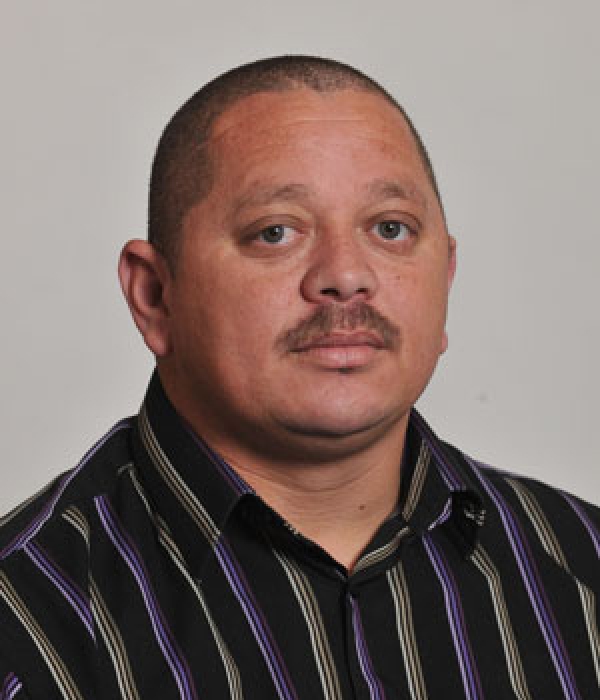Liebenberg’s argument is a straw man

The City is not opposed to social audits, but takes issue with the way the SJC carried out its audit, writes Counsellor Ernest Sonnenberg in response to Professor Sandra Liebenberg.
Professor Liebenberg’s Social Audits and the right to sanitation demonstrates a worryingly narrow comprehension of the work done by both the City and the Social Justice Coalition (SJC) and the broader contexts of each. In arguing the need for social participation, and then casting the SJC as the conduit through which this must occur, Liebenberg (perhaps unwittingly) builds herself a straw man argument, which she then proceeds to set alight over the next 1 300 words.
The assumption that the only interaction that Khayelitsha residents have with the City is through the SJC is gravely misguided and simply incorrect. Every project and programme carried out by the City is informed by engagement between residents and the City’s various departments. If, hypothetically, it was the case that the City relied on the SJC to act as its means of communication with the community, it would be guilty of egregiousness as the SJC’s membership represents a tiny percentage of Khayeltisha residents.
It is unwise to take the SJC’s findings at face value or use them as a point of departure. Their misrepresentation of information provided to them by the City on various matters, including the budget (despite numerous attempts to provide clarity), is incredibly dangerous, raises questions about their intent, and exposes their communication process as flawed. The City runs metro-wide programmes that often need to be tailored to individual communities. The SJC works in a few informal settlements in Khayeltisha. The information collected in their audit reflects four out of the 160 communities in which the Janitorial Programme is run, making their findings neither definitive nor credible.
Liebenberg has made the assumption that the City is against social audits and a participatory democracy. The fact is that this administration has and continues to place an enormous emphasis on consultation. The City supports the social audit methodology, but this was never the question. Rather, the City raised legitimate concerns about the manner in which the SJC conducted their process.
In the accepted methodology, a social audit is a collaborative process involving all stakeholders. In the hands of the SJC, it has served simply as a platform from which to attack the City in the interests of their own funding (and related) agendas. Evidence of this is the fact that the SJC did not involve the City in the actual audit process, did not share their raw data, and have failed to recognise material flaws in their methodology. For example, there is no clarity on the standards they use to measure outcomes and they cannot explain contradictions such as finding a toilet ‘dirty’ while simultaneously arguing that they could not access that same toilet to assess it.
There is no virtue in identifying the flaws within a limited sample of a relatively new, voluntary programme and then showcasing them with a flourish. It’s an alarmingly counter-productive move by a group supposedly championing the bigger picture of the provision of sanitation to a poor community, and defeats any supposedly shared objectives with the City of improving existing services for their benefit.
Since the 2006/7 financial year, the City has increased the toilet provision in informal settlements from under 15 000 to over 46 000. This is a result of a sustained and focused informal settlement investment strategy which forms part of our broader commitment to redress and has been achieved, in part, through the City’s liaising directly with every community. Each community has its own unique set of requirements and constraints and it would not be possible to provide such a determined and substantial increase in services without having had direct and sustained community consultation.
Liebenberg completely ignores the fact that the janitorial programme is a service that was voluntarily introduced by the City in an effort to further improve service provision, while providing job opportunities. It is an unprecedented service for a South African metro and the programme sees over 800 janitors employed in 160 areas to clean toilets and carry out basic maintenance. The project is complex and is subject to community dynamics and other factors. As a responsible government, the City has adapted the programme in response to challenges as and when they arise. Liebenberg seems unaware of the history between the SJC and the City on this matter, which has involved numerous meetings and communications, but ended when the SJC walked out of a mediated and facilitated process on the matter, leaving all – not only the City – flabbergasted.
Further, Liebenberg does not give any credence to the City’s view that instead of compiling glossy reports containing out-dated data, the SJC would better serve this community’s interests by submitting complaints about service delivery faults as they encounter them or when they occur. There is a basic system in place that allows for residents to report a fault to the City, who then responds and remedies the fault as soon as possible.
The issue of sanitation is far from straightforward and the City recognises that we need to work tirelessly to improve service provision further. However, it behoves civil society and commentators such as Liebenberg to engage with the substance of the issue, not make factually inaccurate assertions.
Cllr. Sonnenberg is the Mayoral Committee Member for Utility Services in the City of Cape Town.
Next: Joe Slovo housing spat continues
Previous: Khayelitsha’s young BMXers off to the championships

This article is licensed under a Creative Commons Attribution-NoDerivatives 4.0 International License.


